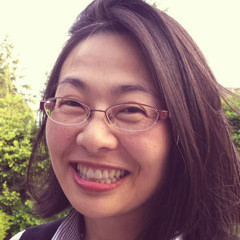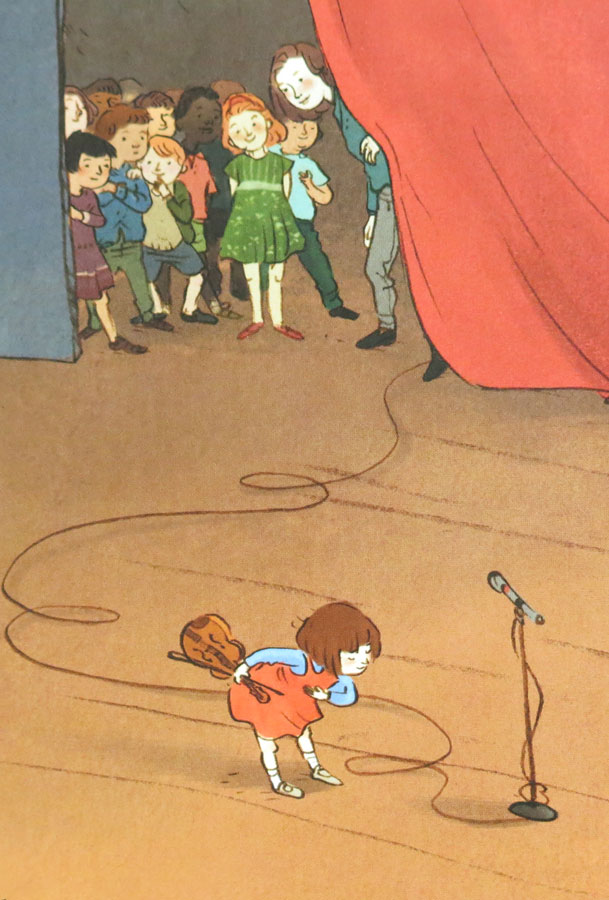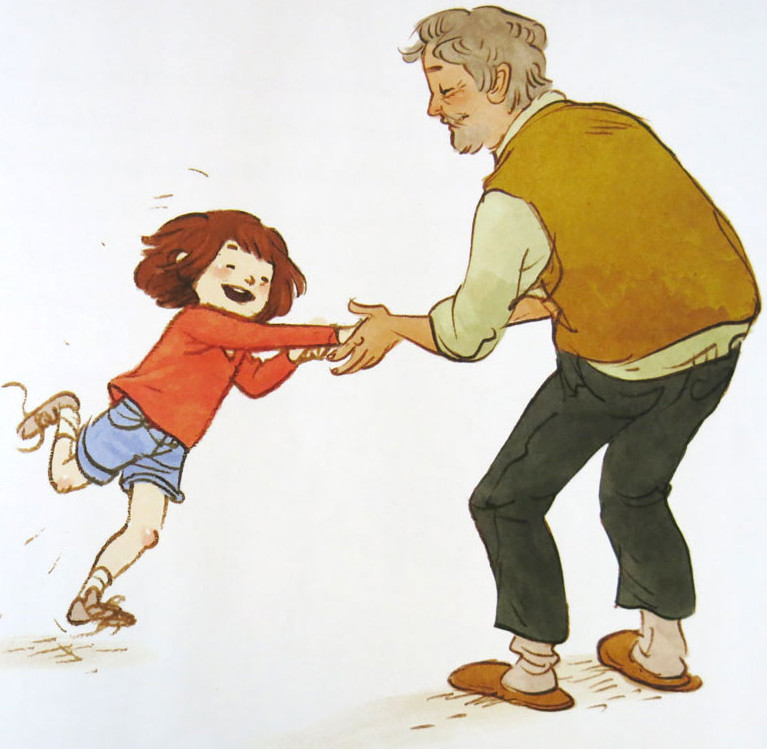New Writer Interview
Chieri Uegaki: Hana Hashimoto, Sixth Violin

I remember what a favorite book meant to me when I was young. It was so intense, how much I could love a book, and want to read it and look at the pictures over and over again.
Interviewed by Margot Abel Associate Director, Ezra Jack Keats Foundation
What’s the appeal of children’s books for you as a writer?
The thing I love most about writing for children is that I remember what a favorite book meant to me when I was young. It was so intense, how much I could love a book, and want to read it and look at the pictures over and over again. So to think that something I write might become as important to a child is very inspiring and gratifying. Children’s books are generally hopeful, and if I can contribute to a reader’s sense of hope, then that’s pretty appealing, too. And finally, there’s the bonus of having illustrations, and the possibility that you’ve helped create a thing of beauty.
Did picture books play a role in your learning English as a second language? How important are picture books in developing literacy?
Yes, picture books were absolutely an important part of my learning English. Until I started school, all of the books that I read or had read to me were in Japanese. But once I learned how to read and write in English, all I wanted to do was read picture books. The more I read, the more my language skills improved. My parents would sometimes read books to me and my sisters, but more often, they would have me read to them, which just sped things up for me.

I believe picture books are vitally important in developing literacy. If you share a picture book with a child, even a book that has no or few words, you’re either reading to them, or they’re reading to you, and you’re discussing and questioning the images and words. This teaches children so many valuable things, painlessly couched in such a pleasant experience.
When I read the criteria of what it means to have written a book “in the spirit of Keats,” I was most proud to be able to mentally tick off that the story “highlights the universal qualities of childhood and the strength of family,” “reflects the multicultural nature of our world,” and “is respectful of the child’s intelligence, sensitivity, curiosity, and love of learning.” These are the qualities I love most about Mr. Keats’s work and that I try to accomplish with my writing, too.
You have said that you tried to write the kind of story you would have wanted to read as a child. Which aspects of this story would have been most important to your young self?
Finding a book featuring a character that looked like me and came from a similar background would have made me feel that people like me were important enough to be written about in a picture book. Growing up, I can’t remember finding any books that reflected my life as a Japanese-Canadian girl. If I had, it would have felt like finding a long-lost friend.
Did you imagine the illustrations as you write? How does the writer of a storybook make room for the illustrator?
I do visualize the story as I go, and I work best if I have a very strong image in mind of characters or scenes. I often find that having a final image or sentence to work towards is helpful. I use language that describes feelings and actions, but try to avoid describing what a character or setting looks like. Those are things the illustrator should create. But I definitely have my own ideas, so when I receive the first sketches of a book it’s like opening a surprise present.

How do you think the EJK Book Award will affect your career?
I’m sure the EJK Book Award will help bring Hana’s story to a wider audience, which is a lovely thing. For me, it’s been amazing to learn about the wider community of people who are so passionate about children’s books. It’s actually a bit overwhelming, too, because my day-to-day life is so far removed from this world, and when I write, it is a solitary, quiet activity that I do in the basement. I certainly feel encouraged and inspired to keep writing. This award may bring me opportunities that I wouldn’t get otherwise but I still have to do the work and try to write the best stories I can.
What advice do you have for hopeful young writers?
Listen more than you speak, read as much as you can, and take notes.
